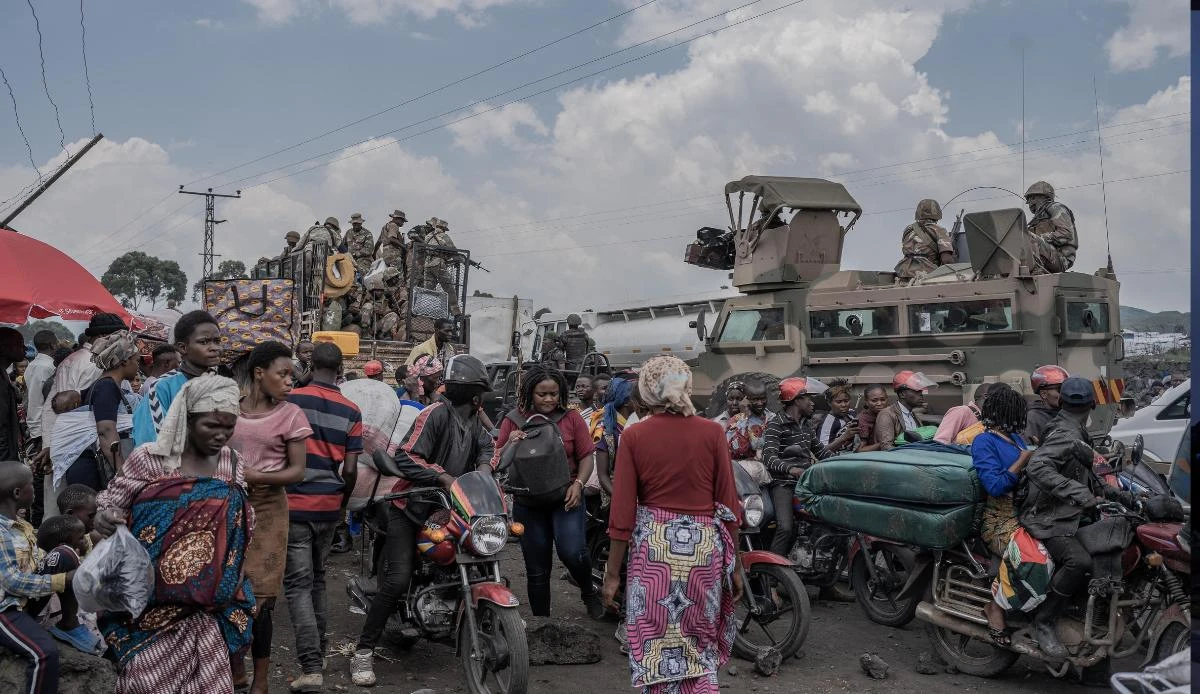Chinese peacekeepers depart as UN mission withdraws from eastern DR Congo

Chinese troops serving with the U.N. stability mission in the eastern Democratic Republic of the Congo held a goodbye ceremony, marking a turning point in a conflict-torn region
Chinese troops serving with the U.N. stability mission in the eastern Democratic Republic of the Congo held a goodbye ceremony on Tuesday, marking an important turning point in the conflict-torn area.
The administration of Kinshasa, which considers the 15,000 MONUSCO troops stationed throughout the large nation of central Africa to be ineffectual in securing the area, has requested the removal.
The disengagement procedure, which began in February, will take place this year in three stages. Phase one, which is expected to be finished by the end of April, entails the removal of police and military forces from 14 locations in South Kivu.
Civilian employees are also expected to disengage by June 30.
Then, attention will turn to the Ituri regions and North Kivu, where M23 rebels have taken control of a sizable portion of the country.
The 200-strong Chinese force, which was mostly made up of medics and construction engineers, was instrumental in many facets of the peacekeeping mission.
Chinese peacekeepers were praised by MONUSCO chief Bintou Keita, who said: “Their know-how, professionalism, and discipline enabled them to overcome challenges in sometimes very difficult conditions.”
She stressed how crucial a role they play in advancing security and peace in the Democratic Republic of the Congo.
Since 2003, the Chinese force has been based at a base on Lake Kivu, close to the province capital Bukavu, where it has been engaged in engineering projects mostly including bridge renovations and road repairs.
After the ceremony, the Chinese troops are expected to leave the Democratic Republic of the Congo in around ten days.
On Feb. 28, however, some 250 Pakistani troops turned over to Congolese police control of their post at Kamanyola, which is close to the borders with Rwanda and Burundi.
Established in 1999, the U.N. operation saw the participation of local troops backed by Angola, Namibia, Zimbabwe, Uganda, and Rwanda to stop the second conflict in the DRC.
The operation claimed 20,000 U.N. soldiers in the nation at its height. Sadly, according to U.N. statistics, over 270 MONUSCO troops have lost their lives.
For three decades, armed groups have terrorized the eastern area, and Kinshasa has constantly condemned MONUSCO for what it sees as its inability to safeguard people from these organizations.
Millions of people have been displaced and hundreds of thousands of people have died as a result of wars that have occurred during the 1990s, highlighting the ongoing difficulties that the Democratic Republic of the Congo has as it works toward stability and peace.
Source: AFP



